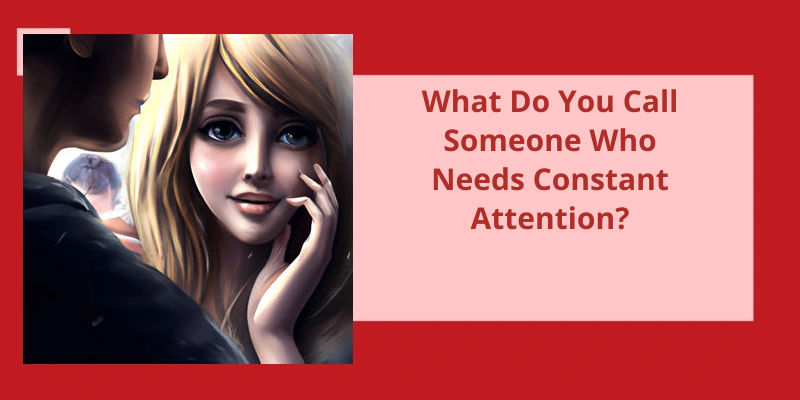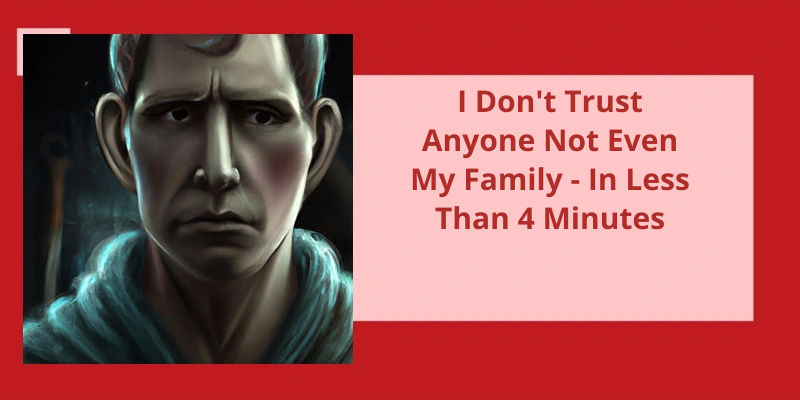In the field of psychology, there are numerous personality disorders that have been identified and studied. One such disorder is known as histrionic personality disorder, which is characterized by a constant need for attention and validation, often leading to inappropriate or exaggerated behavior. People with this disorder are often described as being dramatic, flamboyant, and emotionally unstable, with a tendency to overreact to minor events. This disorder can cause significant distress and impairment in their personal and professional lives, and treatment often involves a combination of psychotherapy and medication. Understanding histrionic personality disorder is crucial for those who may be experiencing symptoms or for loved ones who may be observing such behavior in someone close to them.
Is Attention-Seeking Part of Bipolar?
Attention-seeking behavior can be one of the many symptoms of bipolar disorder, but it isn’t necessarily a defining characteristic. Bipolar disorder is a mood disorder that’s characterized by extreme changes in mood, energy, and activity levels. These mood swings can range from episodes of mania to periods of depression. While attention-seeking behavior may be present during manic episodes, it isn’t always present during depressive episodes.
They may feel the need to be the center of attention, take risks to draw attention to themselves, and act in ways that are socially inappropriate. However, this behavior isn’t unique to bipolar disorder and can be seen in other mental health disorders as well.
Seeking attention may be a way for them to feel validated, heard, and supported. However, this behavior can also be harmful if it leads to negative consequences such as social isolation, relationship problems, and difficulties in school or work.
This may involve medication, therapy, and lifestyle changes to help manage mood swings and improve overall functioning. Additionally, it’s important to provide individuals with positive attention and validation in healthy ways that promote social connection and self-esteem.
Understanding the different disorders that affect attention is critical in identifying and treating individuals struggling with them. While ADHD is the most well-known condition, disorders such as schizophrenia, prosopagnosia, and hemineglect syndrome require equal attention. Surprisingly, even conditions that may not seem initially related to attention, such as schizophrenia, can feature attention disturbances. Let’s delve into each disorder’s characteristics and how they affect the ability to pay attention.
What Are the Disorders for Attention?
Attention disorders refer to the inability to sustain mental focus and concentration. These disorders come in different forms, and they may affect people in various ways. Attention-deficit hyperactivity disorder (ADHD) is perhaps the most well-known attention disorder. It affects people of all ages and manifests itself in difficulties with impulsivity, hyperactivity, and inattention. ADHD is typically diagnosed in childhood, but it can persist well into adulthood.
Schizophrenia, surprisingly, also affects attention. Specifically, they show problemswith selective attention, which is the ability to focus on specific stimuli while ignoring distractors. This may contribute to their disorganized thinking and cognitive dysfunction.
Prosopagnosia pertains to the inability to identify faces, which in turn results in social, occupational and emotional problems. This disorder is characterized by the impairment of the brains recognition network, which makes it difficult for people with prosopagnosia to recognize familiar faces, facial expressions, or gender.
Hemispatial neglect syndrome (HNS) is a neurological disorder that occurs when an injury to the brain causes difficulty in perceiving or attending to one side of the body, usually the opposite side of the injury. This disorder is often related to stroke or other brain injuries, and it can manifest itself as a lack of attention to a particular side of a persons body or a specific part of their environment. It can also lead to neglecting certain activities and behaviors, such as personal hygiene or dressing a certain side of the body.
Attention Disorders in Adults, and How They May Differ From Childhood ADHD
Attention disorders in adults refer to conditions that affect an individual’s ability to focus, pay attention, and organize tasks or activities, and they may differ from childhood ADHD in various ways. Unlike childhood ADHD, symptoms that characterize attention disorders in adults may become more apparent as responsibilities and stress levels increase, as well as manifesting differently. For example, adults with attention disorders may have difficulty with time management, impulsivity, and staying organized rather than only with hyperactivity and impulsivity, which are often associated with childhood ADHD.
While seeking attention is a natural human behavior, some individuals require an excessive amount of attention to feel validated or important. In some cases, this may be a sign of Histrionic Personality Disorder, a mental health condition marked by a distorted self-image and an overwhelming desire to be noticed. People with HPD often behave inappropriately or dramatically to gain the approval and attention of others. In this article, we will explore the symptoms and treatment options for Histrionic Personality Disorder.
What Do You Call Someone Who Needs a Lot of Attention?
Individuals with Histrionic personality disorder may engage in excessive flattery or seductive behavior to gain approval from others, even if it isn’t genuine. They may also be prone to exaggeration and may often use physical appearance to draw attention to themselves. People with HPD tend to be emotional, easily influenced by the opinions of others, and may struggle with relationships due to their inconsistent behavior.
While many people may exhibit attention-seeking behaviors from time to time, those with Histrionic personality disorder experience a persistent need for constant attention and adoration from others. This constant need for attention can be exhausting for those around them, leading to strained relationships. While there’s no known cure for HPD, psychotherapy and medication may help manage symptoms and improve overall functioning.
If you or someone you know is exhibiting symptoms of Histrionic personality disorder, don’t hesitate to reach out for help. With the proper treatment and support, individuals with HPD can learn to manage their symptoms and improve their quality of life. Remember, seeking help is a sign of strength, and there’s no shame in asking for support when you need it.
What Are Some Strategies for Managing Attention-Seeking Behavior?
Attention-seeking behavior can be managed through a variety of strategies including positive reinforcement, setting clear boundaries and consequences, redirecting the behavior, and providing alternative outlets for attention. It’s important to also address any underlying emotional or behavioral issues that may be contributing to the behavior.
Many people struggle with staying focused and attentive, especially in today’s fast-paced world filled with constant distractions. This inability to concentrate can have a significant impact on one’s daily life, making it difficult to complete tasks or follow through on commitments. In the field of psychology, this lack of attention is known as inattention and distractibility. Let’s take a closer look at what these terms mean and explore some common causes and potential solutions for these issues.
What Is the Psychological Term for Lack of Attention?
In other words, a lack of attention refers to the inability to focus on a specific task or object, leading to distractibility and poor performance. It’s commonly observed in individuals who’ve attention deficit hyperactivity disorder (ADHD) or other learning disabilities. However, it can also occur as a result of fatigue, stress, or certain medications.
Inattention can manifest in various ways, including difficulty sustaining attention, inability to follow through on tasks, forgetfulness, and disorganization. These symptoms can lead to significant impairment in academic, occupational, and social settings, causing frustration and anxiety for those affected. Additionally, it can also lead to safety concerns, such as distracted driving or workplace accidents.
Psychologists have identified several potential causes of inattention, including genetic factors, brain abnormalities, and environmental influences. Treatment for inattention typically involves a combination of medication, therapy, and lifestyle modifications. For example, exercise and mindfulness practices have been shown to improve attention and reduce distractibility.
While ADHD is a well-known disorder associated with attention and behavior, some individuals may experience similar symptoms without meeting the criteria for a formal diagnosis. This raises the question: is there a disorder for lack of attention?
Is There a Disorder for Lack of Attention?
The symptoms of ADHD can be very disruptive in daily life, and can affect academic and social success. However, it’s important to note that having difficulty paying attention doesn’t necessarily mean someone has ADHD. There are many reasons why individuals may struggle with attention, including stress, anxiety, depression, and even lack of sleep.
For individuals who do have ADHD, there are effective treatments available. These may include medication, therapy, and lifestyle changes. However, it can be challenging to find the right combination of treatments, and success may vary depending on the individual.
One common misconception about ADHD is that it only affects children. While ADHD is often first diagnosed in childhood, it can continue into adulthood.
While inattention is one symptom of ADHD, individuals with ADHD may also struggle with hyperactivity and impulsivity. This can lead to behaviors like fidgeting, interrupting others, and taking risks without considering the consequences.
However, with proper diagnosis and treatment, individuals with ADHD can manage their symptoms and lead fulfilling lives. If you or someone you know is struggling with difficulty paying attention or other symptoms of ADHD, it may be worth speaking with a healthcare professional to determine if a diagnosis is appropriate.
Tips for Managing ADHD Symptoms Without Medication
- Create a schedule or routine and stick to it.
- Break tasks into smaller, more manageable chunks.
- Use a timer to help stay focused and on task.
- Eliminate distractions in your workspace.
- Try relaxation techniques like deep breathing or meditation.
- Exercise regularly to help reduce symptoms.
- Use a planner or organizer to keep track of tasks and deadlines.
- Get enough sleep and maintain a healthy diet.
- Seek support from friends, family, or a therapist.
Conclusion
This disorder can have a significant impact on the individual's relationships, work, and overall quality of life. Understanding and recognizing these behaviors is crucial for proper diagnosis and treatment, and it’s important for individuals with these symptoms to seek professional help. With the right support, those with Histrionic Personality Disorder can learn healthy ways to cope, communicate, and build fulfilling relationships.






